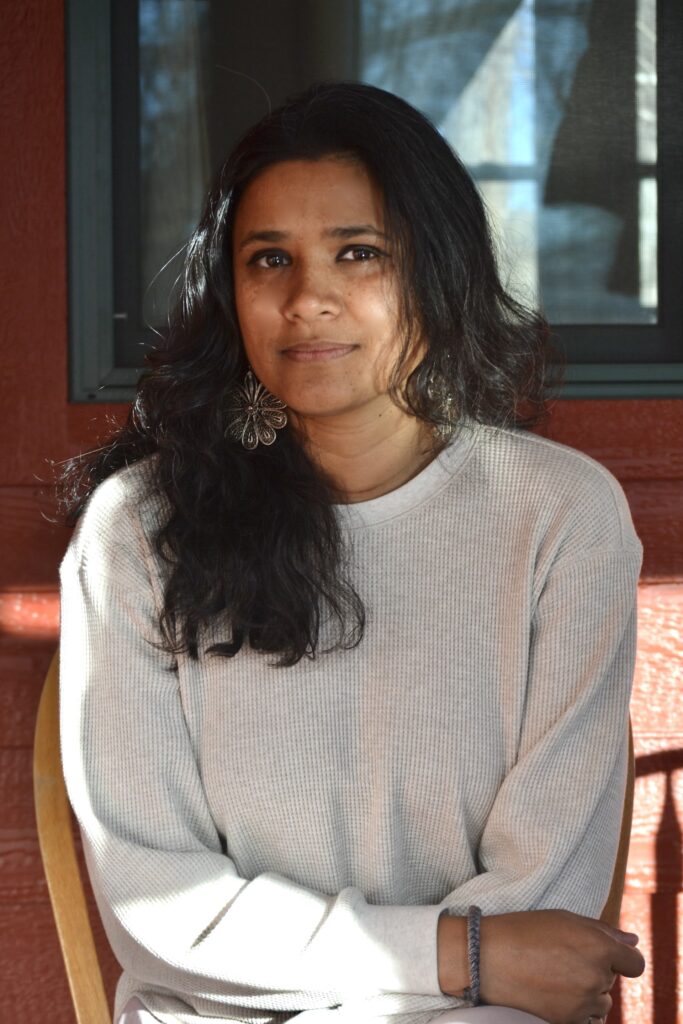
2024 Fiction Contest Judge Misha Rai tells Third Coast editors about how the support of contests has influenced her career, what hooks her when reading submissions, and the blurred lines of literary and genre fiction.
How has support from writing contests helped to shape your career? What value do you see in submitting to writing contests?
Misha Rai: For me, the support from writing contests has been career changing. Even being longlisted or shortlisted in a contest has resulted in editors from journals/anthologies emailing to ask for my work. There are agents who have reached out wanting to read a manuscript, and they’ve offered me representation. This is definitely one way to be legible as an artist in the writing/publishing community and the larger reading world.
Then there is that absolutely necessary confidence boost that you get from placing in a contest. I think that last part is super important.
The other thing is a writer must also make a habit of submitting work, collecting whatever response comes their way, and then doing it all over again. This too is a muscle the writer has to exercise. To say you’re a writer is to say I will put my work out there for someone to read, think about, hopefully be entertained and moved by, and only then make a choice to publish or not publish the work. I think contests are a wonderful way to put into practice what is an essential skill a writer has to become good at practicing.
As a judge, what kind of work do you find most often piques your interest? Is there anything in particular you’d love to see from entrants?
MR: I am a sucker for musicality of language, but that sort of beautiful sentence in and of itself is not enough. Within a really well told short story those sentences are magic. Honestly, what I want is to be able to lean in as I read, as if I was around a campfire and someone was sitting across from me telling me a story.
I read rather widely, eclectically, and I am never sure of what will hook me where subject matter or even genre is concerned, so I’m excited to read the submissions with an open mind.
Where do you stand on this commonly given piece of writing advice: “write what you know?”
MR: I both agree and disagree with it. Since I am a writer as well, the best version of this advice means mining an emotion you feel and putting the depth of that feeling in a character you’re working on, whether or not the circumstances of your life and the life of the character you’ve imagined run parallel. For example, everyone knows what disappointment feels like but what makes my sense of disappointment different will also make how the character expresses it particular to them.
That being said, the whole point of writing fiction is to write FICTION! We have a license to imagine. What a poor writing life it would be if we were to allow ourselves to only “write what you know.”
What book is on your bedside table right now?
There are a few. A little while ago I began to read several books at once, which is a new thing for me. Anyways, here is what I have been staying up at night with:
- The Best American Mystery and Suspense 2024
- Blue Light Hours by Bruna Dantas Lobato
- Sweet Days of Discipline by Fleur Jaeggy
- Orbital by Samantha Harvey
- Dengue Boy: A Novel by Michel Nieva
- Lonely Planet Guide to Washington, Oregon & the Pacific Northwest
Do you think there’s a place for “genre” elements in literary fiction? Can mystery, horror, and fantasy lie in the same bed with the “literary” fiction more traditionally published by magazines such as Third Coast?
MR: Absolutely and yes. In fact, the best fiction, in my opinion, is made up of what some call “genre” and what others call “literary.” Most “canonical literature” is made up of just such a medley. There is a storied tradition of blurring such lines and more journals should have an open mind about what they publish.
Misha Rai is a Shirley Jackson Award nominated writer whose prose has been supported by the Kenyon Review Fellowship Program, Bread Loaf Environmental Writers’ Conference, MacDowell, Ucross, the Virginia Center for the Creative Arts and the Dana Award in the Novel Category. Her short story, “Twenty Years Ago” is a Distinguished story in the 2021 Best American Short Story anthology. In 2022 her fiction was longlisted for the Disquiet Prize. Her essay, “To Learn About Smoke One Must First Light a Fire,” winner of the Dogwood Literary Prize in Nonfiction, is listed as a Notable Essay in the 2019 Best American Essays anthology. Her prose appears in a number of journals and anthologies. Misha was born in Sonipat, Haryana and brought up in India where she first worked as a journalist, and then, later, in human rights for the National Human Rights Commission, The International Labour Organization, and on projects run by the Ministry of Women & Child, India, and the UNICEF. She currently edits for the Kenyon Review and teaches Creative Writing at Sewanee: The University of the South.